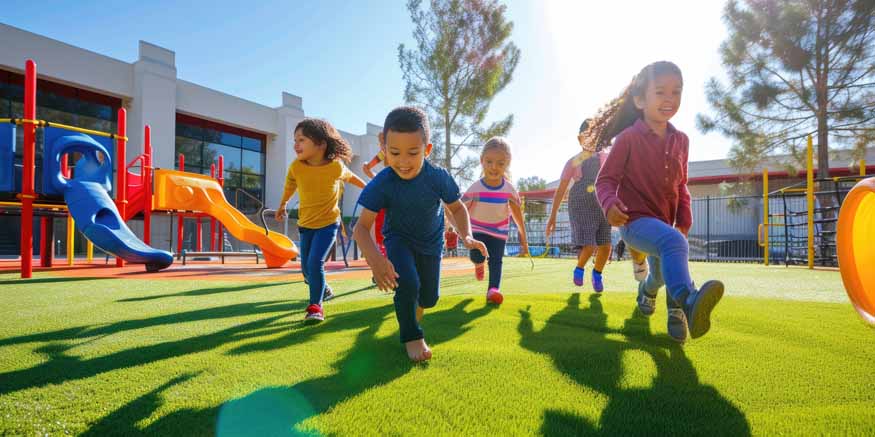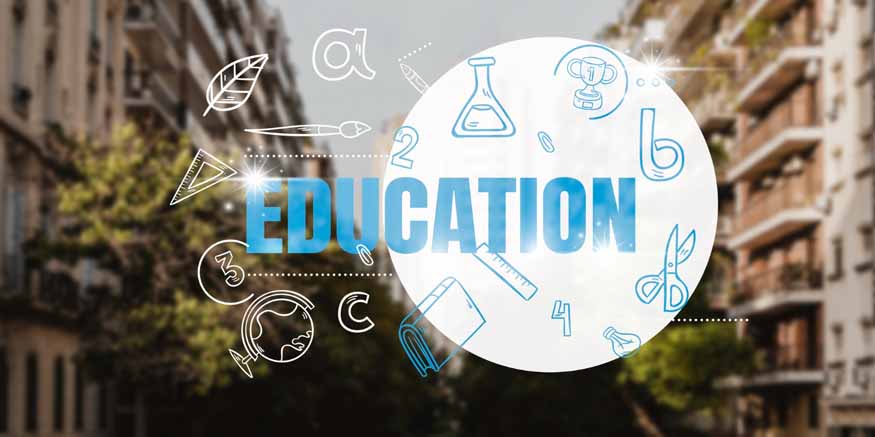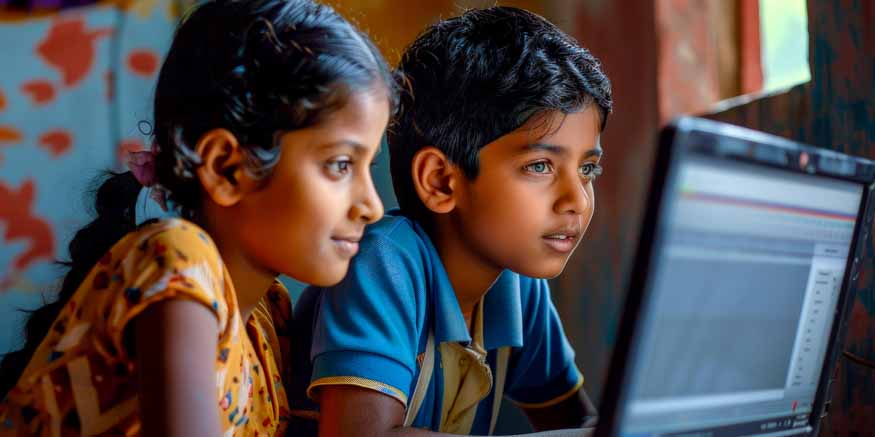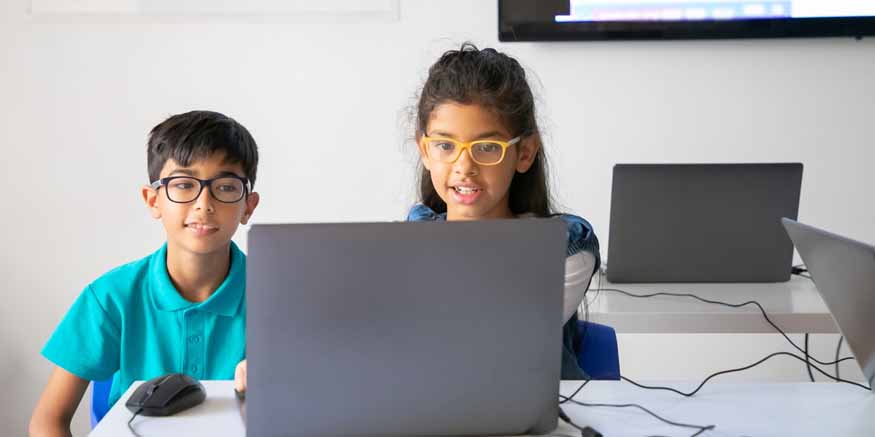Children’s thoughts alter a lot as they mature and develop. A child’s capacity to learn, think, reason, and solve issues is significantly shaped by their cognitive talents. Here, we’ll examine the definition of cognitive abilities, their significance to a child’s growth, several categories of cognitive skills, and some concrete instances of cognitive skills.
Cognitive Skills Meaning
Cognitive talents span a wide range of mental abilities that enable people to understand information and interact effectively with others. Perception, attention, memory, language, logic, and problem-solving are only a few of these processes. As kids progress through different developmental stages, their cognitive abilities develop, which enhances learning and analytical thinking.
Also Read: The Importance of School Education
Types of cognitive skills in children
Here are some types of cognitive skills in children:
In a developing child, cognitive skills play a vital role in facilitating understanding and learning. These skills, often nurtured from a young age, can shape how a child perceives and interacts with the world around them. Let’s delve into the various types of cognitive skills that are fundamental in children’s cognitive development.
Attention
Children develop the ability to focus on specific tasks or stimuli in their environment. This skill is bifurcated into different subtypes:
Sustained Attention: The capacity to maintain focus on a task for an extended period.
Selective Attention: Being able to concentrate on one task despite distractions.
Divided Attention: The ability to manage multiple tasks simultaneously.
Memory
Memory helps children store and retrieve information:
Short-term Memory: Holding a small amount of information for a brief period.
Working Memory: Manipulating and using stored information to perform complex tasks.
Long-term Memory: The ability to retain and recall information over a prolonged period.
Logical Reasoning
This skill enables children to think critically and solve problems:
Inductive Reasoning: Making generalisations based on specific instances.
Deductive Reasoning: Drawing specific conclusions from general principles.
Visual and Spatial Processing
Children learn to interpret and use visual information:
Visual Discrimination: Distinguishing between different shapes, sizes, and colours.
Spatial Awareness: Understanding the relationship between objects in space.
Auditory Processing
This skill helps children decode and interpret sounds:
Auditory Discrimination: Differentiating between various sounds.
Phonemic Awareness: Recognising and using sounds in language.
Processing Speed
The speed at which a child can perceive and react to information is critical:
Simple Processing Speed: The rate of identifying simple stimuli.
Complex Processing Speed: The ability to process complex information quickly.
Executive Functions
Executive functions are higher-order cognitive skills that include:
Inhibition: Restraining impulses and focusing on relevant tasks.
Flexibility: Adapting to new information or changing situations.
Planning and Organisation: Outlining steps and organising materials to achieve a goal.
Supporting Cognitive Development
Understanding the different types of cognitive skills provides a roadmap for parents, teachers, and caregivers to support children in their developmental journey. The nurturing of these skills can be facilitated through:
Encouraging Curiosity: Foster a learning environment where questions are welcomed.
Problem-solving Activities: Provide opportunities for children to solve problems and think critically.
Memory Games: Enhance memory skills through games that encourage recall.
Creative Play: Support spatial and visual processing through drawing, building, and other forms of creative play.
Active Engagement: Encourage active listening to develop auditory processing skills.
Cognitive skills in children are multifaceted, involving a complex interplay of different abilities that facilitate learning and understanding. By recognising and nurturing these skills, we can guide children towards a path of successful cognitive development, equipping them with the tools necessary to navigate the world with curiosity, understanding, and resilience.
Also Read: 10 Best Ways to Boost Cognitive Development in Kids
Cognitive skills examples
In children, cognitive skills development is a critical part of their overall growth. Here are some examples:
Memory: A child remembering the rules of a game, or recalling the names of their classmates.
Concentration: A child concentrating on a puzzle or a storybook.
Problem-Solving: A child figuring out how to stack blocks without them falling over, or solving a simple maths problem.
Language Skills: These involve understanding and using language. This could be in the form of recognising and pronouncing words, understanding sentences, or using appropriate vocabulary.
Logical Reasoning: A child figuring out that if they haven’t seen their mother since morning, she may be at work.
Visual Processing: A child identifying different shapes or colours, or recognising familiar faces.
Auditory Processing: A child following verbal instructions or distinguishing between different sounds.
Spatial Awareness: A child navigating through a playground or arranging toys in a certain order.
Decision Making: A child deciding which toy to play with, or choosing what to wear based on the weather.
Critical Thinking: A child understanding why it’s important to brush their teeth, or figuring out the difference between right and wrong.
Also Read: What is Kinesthetic Learning? Meaning, Style, Examples, Activities
Cognitive skills development in children
Cognitive skills in children develop through a combination of both genetic and environmental factors. It’s a complex process that involves the growth and strengthening of neural connections in the brain. Here are some key points to understand how cognitive skills develop in children:
Maturational Development: As a child’s brain grows and matures, so do their cognitive abilities. This is largely guided by genetics, which determine the basic wiring of the brain.
Experience: Interactions with the world and the environment are crucial to cognitive development. This can include everything from playing with toys, to conversations with parents, to exposure to books and educational media. These experiences help to shape and refine the neural connections in a child’s brain.
Learning through Play: Play is an important part of cognitive development. It allows children to explore, experiment, and learn about the world in a safe and engaging environment. Through play, children can develop skills like problem-solving, decision-making, and logical reasoning.
Scaffolding: This is an educational term that refers to the support given to a child to help them perform a task just beyond their current abilities. As the child becomes more proficient, the support is gradually removed. This can be a very effective way to help children develop new cognitive skills.
Social Interaction: Interaction with peers, parents, and teachers provides children with opportunities to learn and practice various cognitive skills, such as communication, empathy, negotiation, and conflict resolution.
Formal Education: School and other educational settings provide structured learning experiences that promote cognitive development. This includes learning academic skills like reading, writing, and maths, as well as critical thinking and problem-solving skills.
Nutrition and Physical Health: Proper nutrition, regular physical activity, and adequate sleep also play a role in cognitive development. They help to ensure that the brain is functioning optimally and is able to form and maintain the necessary neural connections.
Also Rеad: Metacognitive Strategies In The Classroom
By providing a stimulating environment and using a variety of methods, EuroSchool helps children develop their cognitive abilities and set them up for success in school and in life.









